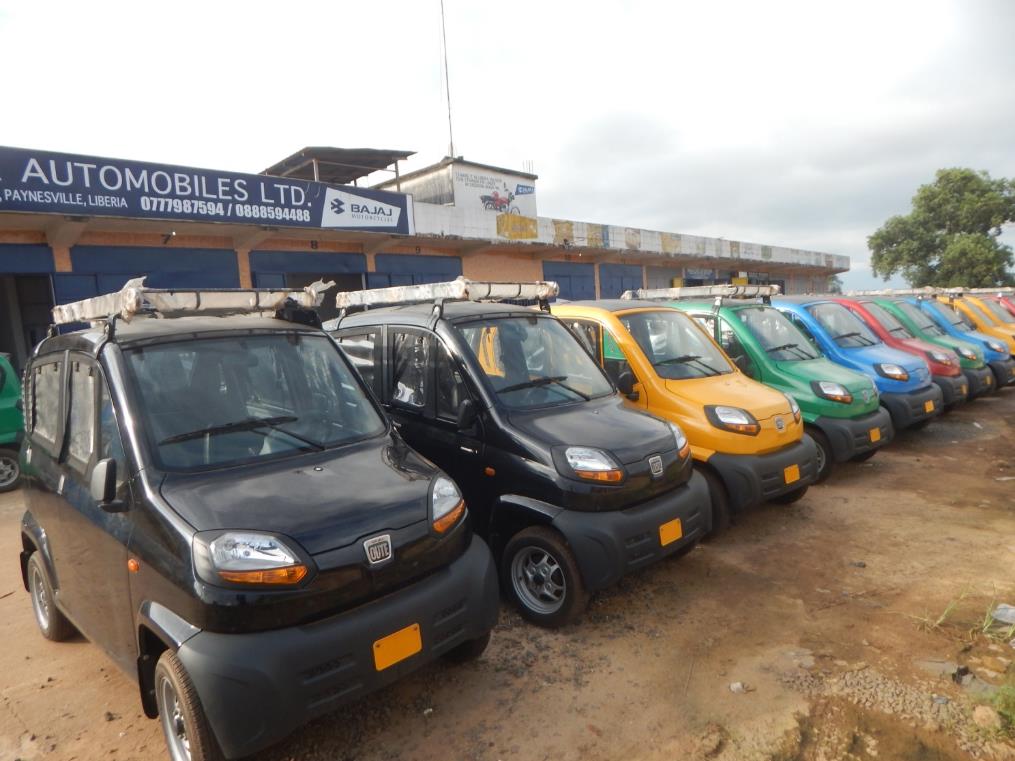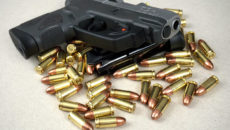In a recent interview with The Bush Chicken, police spokesperson Sam Collins said the police were considering imposing restrictions on a new class of vehicles being imported into Liberia, subcompact vehicles.
Following this interview, Collins did retract his statements and clarified that while the Division of Public Safety had not yet made a decision, it is important to avoid any rash assessments made in the name of safety that may not necessarily be supported by evidence.
Understandably, the subcompact vehicles that have been appearing in increasing numbers on Monrovia’s streets are unusual in their size and look, and that can be disconcerting to some. However, it is important to note that the vehicles, manufactured by Bajaj (the same company that makes many of the motorcycles and tricycles on Monrovia’s streets), are similar in size to vehicles manufactured by Smart Automobiles and generally used on American streets without additional restrictions.
In Liberia, the only restrictions that make sense would be to keep the vehicles off the highways because their maximum speed of 44 miles per hour is fairly low, as they were designed for city driving. Such restrictions have been instituted in India, where these vehicles are manufactured. Smart Automobiles’ subcompact vehicles sold in the US have a much higher maximum speed and therefore can be driven on highways.
It makes sense to restrict the vehicles from the highways because safety on roadways increase when there is close to uniform driving behavior. For example, the probability of crashes decreases when most vehicles are traveling at the same speed, as opposed to a high variance in speed, which may create more opportunities for conflicts caused by maneuvers like overtaking.
Of course, a vehicle that is smaller would be inherently less safe than a larger vehicle of comparable composition if they were both involved in a crash. However, that difference may not matter much, given the generally low average speed on Monrovia’s congested streets. Moreover, there are already compact vehicles on the road that are only slightly larger than the subcompact vehicles being introduced. The police’s Division of Public Safety also says there have been no reported accidents involving these vehicles since March 2016.
Besides the debatable issue of the vehicles being unsafe, going after these vehicles is generally bad practice for the environment. They are more efficient and less polluting than the typically older and less efficient vehicles serving as shared taxis.
Bajaj’s advertised gas mileage of 36 kilometers per liter is the equivalent of 85 miles per gallon, whereas most of the old vehicles on the road used for taxis will not go beyond 30 miles per gallon.
Moreover, the police have in the past made an explicit goal of reducing traffic congestion. If they are serious about this, these vehicles make even more sense, as they occupy much less space than ordinary taxis, not to mention SUVs (or Jeeps, as they are known locally).
The Bajaj Qute is two-thirds of the length of a sedan and has a capacity of one less person. Simplifying to exclude the extra spacing between vehicles, three subcompact vehicles could take the place of two sedans and still carry 12 people, more than the 10 that could be carried in a sedan. If anything, the police should be trying to encourage more people to drive these vehicles.
If we consider subcompact cars in terms of their environmental footprint, specifically with regards to space on roadways and energy use, then why regulate them? Perhaps the police, who inherently lack the fundamental subject expertise to make such complex public policies relating to vehicles, should be relegated to the role of enforcer. It would make more sense if such policies originated from more apt agencies, such as the Ministry of Transport.
Featured photo by Zeze Ballah



